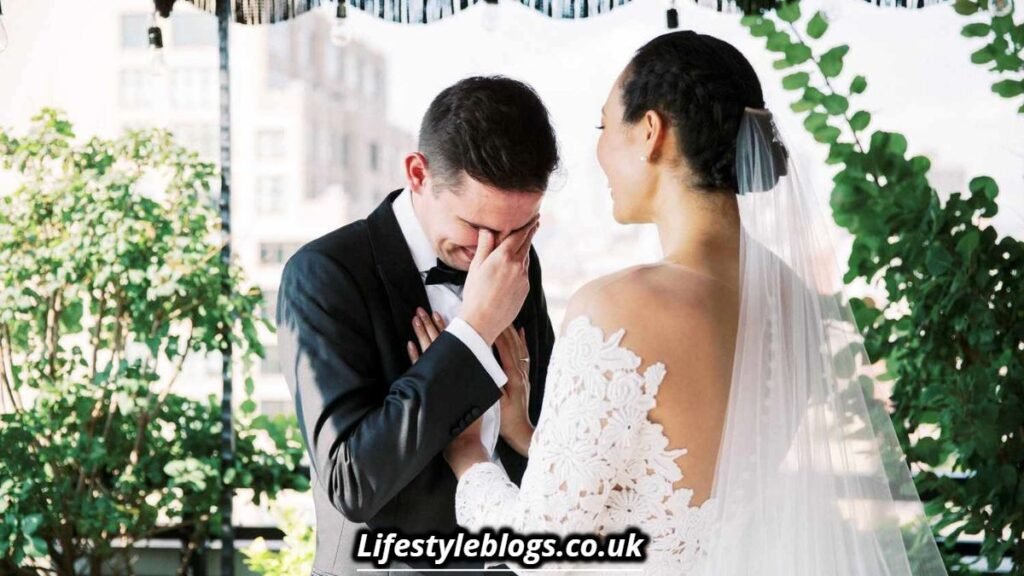Introduction
Weddings are emotional by nature—filled with love, promises, joy, and sometimes, tears. But what if you find yourself crying during your wedding? Is it a bad sign or a symbol of something deeper?
Many people wonder whether crying at a wedding could be bad luck or foreshadow trouble in the marriage. Others believe it’s a powerful, spiritual release of emotion that marks the depth of the moment.
Let’s explore the cultural meanings, superstitions, emotional interpretations, and truths behind shedding tears on your wedding day.
The Emotional Meaning of Crying at a Wedding
Crying on your wedding day is more common than you think, and it’s often a sign of genuine emotion. Here’s what it might represent:
- Tears of Joy: Overwhelmed by happiness, love, and gratitude.
- Emotional Release: Letting go of stress, nerves, and months of planning.
- Spiritual Connection: Feeling the sacred energy of the moment.
- Nostalgia: Thinking of loved ones who aren’t present or reflecting on your journey.
In most cases, crying means your heart is fully engaged in the experience.
Superstitions: Is Crying at Your Wedding Bad Luck?
While some old beliefs associate tears with sadness, crying during a wedding is rarely seen as bad luck. In fact, in some cultures, it’s believed to be good luck or a sign of deep commitment.
Common Beliefs Include:
- Positive Superstition: Tears on your wedding day “wash away” sadness from the future.
- Old Wives’ Tale: If the bride cries before or during the wedding, it ensures a happy marriage—because she’s already shed all her tears.
- Negative Belief (Rare): A few outdated superstitions see tears as a sign of sorrow to come—but these are not widely believed today.
Truth Check: There is no spiritual, religious, or scientific evidence that crying causes bad luck. It’s just an emotional response.
Cultural & Religious Views on Crying at Weddings
Western Culture
Crying at weddings—by the bride, groom, family, or guests—is often embraced and celebrated. It’s seen as a touching and sincere moment.
Eastern Cultures
In some parts of Asia, crying may be considered a private expression, but even there, wedding tears are respected, especially when tied to emotion or farewells.
African Traditions
Some African cultures view bride’s tears during traditional send-offs as a rite of passage and a powerful emotional transition.
Islamic (Muslim) View
In Islam, marriage (Nikah) is a sacred contract and an act of worship. Crying at a wedding is not seen as bad luck; rather, it can reflect sincerity, humility, and gratitude. The Prophet Muhammad ﷺ and his companions expressed emotions during significant moments in life.
If someone cries during Nikah or the wedding ceremony, especially due to emotional dua, joy, or love, it is considered natural and heartfelt, not an omen. Islam focuses on niyyah (intention) and the strength of the marital bond, not on emotional expressions like tears.
Religious Beliefs (General)
Most religious views recognize marriage as a sacred bond. Crying in this context is usually seen as a heartfelt response, not a sign of bad omen.
Why Do People Cry at Weddings? (Real Reasons)
Crying during a wedding can be triggered by many sincere and human reasons:
- Emotional overwhelm
- Hearing heartfelt vows
- Seeing loved ones together
- Memories of lost relatives
- Personal spiritual or life reflection
Sometimes, the tears are unexpected—but they’re often healing and beautiful.
What To Do If You Cry at Your Wedding
- Don’t Hide It: Let yourself feel. It’s okay to be emotional.
- Keep Tissues Handy: A small tissue or handkerchief can be your best friend.
- Take Deep Breaths: If you feel overwhelmed, pause and breathe.
- Embrace the Moment: These tears make your day more real and memorable.
- Laugh Through It: If you cry and smile at the same time, it’s even more powerful.
Personal Insight: Tears That Strengthen Bonds
I’ve witnessed many weddings where both the bride and groom cried—and those couples often say it brought them closer together. Tears can be a beautiful reminder that you are fully present and emotionally invested in your love story.
Conclusion: Is It Bad Luck to Cry at Your Wedding?
Let’s summarize:
- Superstition? Mostly outdated. Some say it brings good luck, not bad.
- Culturally? Tears are a sign of emotional depth and sincerity.
- Religiously? No major religion sees wedding tears as a bad omen.
- Realistically? Crying is natural, human, and often healing.
Final Thought:
Crying at your wedding doesn’t invite bad luck—it reveals the depth of your love. So go ahead and let the tears flow if they come. They’re not a curse—they’re a blessing in disguise.
